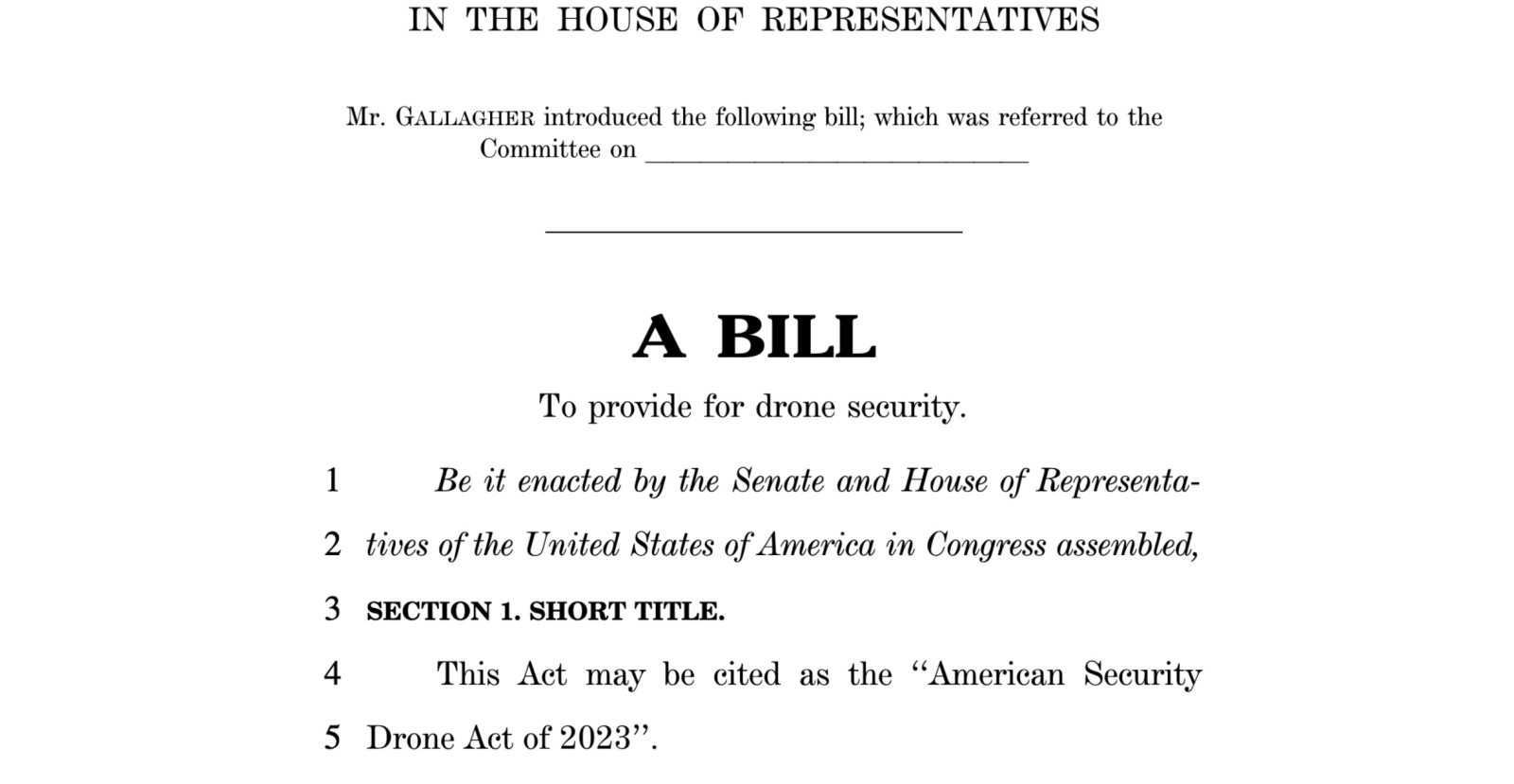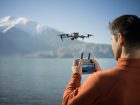
US politicians responding to soured relationships and strong distrust of China have again tabled legislation seeking to prohibit use of technology produced by companies from the nation, with popular and widely deployed DJI drones clearly the primary focus of those efforts.
Leaders of the House of Representatives’ committee on China presented a bill on Tuesday designed to prohibit any agency of the US government – or outside organizations using federal funding – to purchase or operate UAVs from countries considered security threats. Although the text doesn’t explicitly name DJI, the “American Security Drone Act” very clearly sets its sights on the Shenzhen firm.
Using not-so-subtle wording, the bill targets drone companies “domiciled in the People’s Republic of China or subject to influence or owned or controlled by the Government of the People’s Republic of China,” and considered security threats “by the Secretary of Homeland Security, in coordination with the Secretary of State.”
The bill is one of several in the legislative works seeking varying degrees of restricting Chinese tech in the US, including a twinned text previously introduced in the Senate. Those followed blacklists prohibiting defense and other federal agencies from using drones from China that allegedly leak user data back to officials in Beijing – accusations also leveled against DJI that the company has flatly denied.
One such proposal endeavors to extend interdictions on using China-made drones in official work to de facto bans of DJI craft popular with millions of consumers and enterprise operators as well. The bill calls for prohibiting suspected UAVs from transmitting pilot commands and other navigation data via ubiquitous Federal Communications Commission infrastructure – assets that all aircraft rely on.
In addition to barring US government agencies and outside organizations from buying drones from China with federal funds, the “American Security Drone Act” would also require a complete inventory of all of Chinese UAVs possessed by official organizations or service providers they use.
Though previous blacklisting has undermined DJI’s once near total domination of the US market, with thats share still well over 50%, the company clearly has the most to lose from any and all new offensives by politicians. And more of those can probably be expected over time.
Indeed, the bipartisan support both the new bill and its predecessors have enjoyed bears witness to how popular anti-China initiatives have become on both sides of the otherwise unbridgeable US political divide. Just how effective those will be in shutting DJI out of the nation’s airspace, however, is another matter.
With existing federal blacklists having had limited impact, several conservative-controlled states have decided to pass laws of their own prohibiting official agencies from using drones from China. That has forced law enforcement agencies in Florida, Arkansas, and other restricted jurisdictions to find alternatives to their DJI UAVs.
Yet an even greater number of police, fire, and first responder services in states where no legal prohibitions have been passed have ignored political concerns behind the spreading anti-China campaign, and announced their procurement of new DJI drones as being most suited to their needs, and the best value for taxpayer money spent.
FTC: We use income earning auto affiliate links. More.




Comments